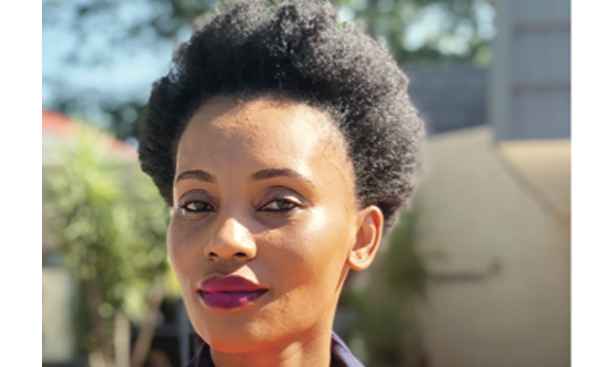Breaking down the Debswana Gender Diversity and Inclusion (GDI) the company’s Orapa Letlhakane Damtshaa Mines (OLDM) Maintenance Coordinator – Control and Instrumentation, Otsile Chaboneka explains that the ideology involves seeing beyond gender and other descriptive filters burdened on individuals by society.
“For me it means a non-dualistic way of living, shedding societal filters and seeing human beings as just that, beings that are just unique and special,” she contends.
Having recently been nominated the Debswana advocate for GDI at OLDM, Chaboneka equates that to being spotted as worthy of echoing the voice that speaks to issues of gender diversity and inclusion. “A very necessary step in the change of the organisation,” she adds.
To her, diversity means everyone is represented and has a voice that needs to be heard in a diverse team and the status quo unlocks various perspectives. It also reflects the company’s tenacity in venturing into unfamiliar territory.
She believes her nomination calls on her to become an expert in the field, something that comes with learning new things every day.
For her part in ensuring GDI in her area of work, Chaboneka first acknowledges that there is competition in innovation and that makes the business to grow exponentially.
“Innovation is born from ideas and experiences by inviting the different voices and really listening and implementing those ideas,” she states.
She believes the scenario brings with it, a strong sense of ownership from the team in whatever they do, bringing astounding results. She, however, cautions team players to remain authentic as there is a distinctive competitive advantage in that.
“By bringing who we are to the table, we will always outperform,” she discloses.
By virtue of her being a woman in the mining space, Chaboneka has had a fair share of stereotypes thrown her way. Off the top of her head she recalls that she had always been made to wonder, if “I lack strength and prowess, especially in the technical field”. Stereotypes, she states, result in women missing out on many growth opportunities.
“An individual’s level of education is also a key issue because we have put school qualifications on a pedestal forgetting that we were all born capable. Some of the best ideas have come from those that are deemed un-learned, everybody deserves to be listened to,” she observes.
Chaboneka contends that “we are all but wounded beings, and hurt people hurt others”. She, however, makes a realisation that there is a difference in the level of consciousness or awareness of the pain and the willingness to recover from it. More often than not, when people put others down, it’s in an effort to put a band-aid on a wound but that too is rather temporary, and defies the purpose of ultimate healing, she recognises.
“We need to heal, but you can’t heal when you don’t realise that you are sick; Asprin anyone?” she retorts.
In a somber note, the Automation and Information Software Technician shares that she has often been accused of trying too hard to become a man.
“I had forgotten how to be a woman and it is very possible that as women we find ourselves mimicking men in attempt to prove we are just as capable, losing ourselves in the process,” she decries, remembering how she at times felt tired of working twice as hard as men to get half as far.
She reveals that she reflected on how she got to that point and made right what had been wrong for some time. Some of the lessons she attributes to her experiences include reflections, self-introspections and self–actualisation.
“To attain gender parity, we need to have a paradigm shift, whereby the negative connotations attached to woman or man are not accepted, Where a woman is comfortable to tap into a man’s masculinity to get the best ideas and vice versa,” she reckons, stating that as mothers of next generation’s, women need to let children be and accept them for who they show the world they are.
